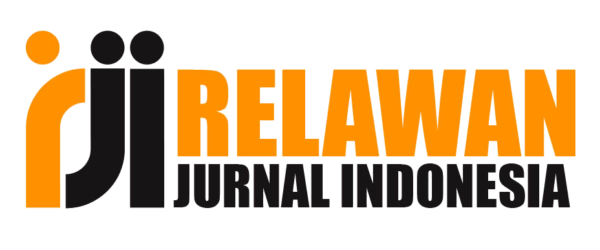PROFIL HAMBATAN BALAJAR EPISTIMOLOGIS SISWA PADA MATERI MOMENTUM DAN IMPULS KELAS X SMA BERBASIS ANALISIS TES KEMAMPUAN RESPONDEN
Abstract
ABSTRAK
Masalah yang melatarbelakangi penelitian ini adalah rendahnya kemampuan siswa dalam memahami konsep esensial pada materi momentum dan impuls. Hal ini terlihat pada hasil studi pendahuluan yang telah dilakukan peneliti melalui tes kemampuan di salah satu SMAN di Kota Bandung, yang menunjukkan bahwa siswa mengalami hambatan ketika mengerjakan soal tes kemampuan pada materi momentum impuls. Tujuan dilakukannya penelitian ini untuk mengidentifikasi profil hambatan belajar epistimologis siswa pada materi momentum dan impuls kelas X SMA berdasarkan analisis tes kemampuan responden. Ditinjau dari hambatan belajar epistimologis siswa hanya memahami konten tertentu pada materi momentum dan impuls, sehingga mengakibatkan siswa mengalami keterbatasan pola pikir dalam konsep momentum dan impuls. Metode yang digunakan pada penelitian ini adalah analisis deskriptif. Dari hasil analisis Tes Kemampuan Responden, teridentifikasi beberapa hal yang menjadi hambatan belajar epistimologis siswa yaitu sebagai berikut: Pertama, siswa tidak mampu mengidentifikasi konsep momentum yang terjadi pada suatu peristiwa. Kedua, siswa tidak mampu menejelaskan konsep momentum. Ketiga, siswa tidak mampu menentukan besar momentum. Keempat, siswa tidak mampu menentukan besar gaya impuls. Kelima, siswa tidak mampu menjelasakan konsep impuls. Keenam, siswa tidak mampu mengkaitkan hubungan antara impuls dengan gaya impuls. Ketujuh, siswa tidak mampu mengaplikasikan prinsip hukum kekekalan momentum untuk menyelesaikan permasalahan. Kedelapan, siswa tidak mampu menidentifikasi karakteristik dari jenis-jenis tumbukan. Kesembilan, siswa tidak mampu menjelaskan apa yang dimaksud dengan koefisien restitusi. Hasil penelitian menunjukkan bahwa perlu adanya upaya untuk meminimalisir hambatan belajar siswa pada materi momentum dan impuls.
Kata Kunci: Hambatan Belajar; Hambatan Epistimologis; Momentum Impuls; Tes Kemampuan Responden
ABSTRACT
The underlying problem of this research is the low ability of students to understand the essential concepts on the material momentum and impulse. This is seen in the results of preliminary studies that have been done by experts in one of High School in Bandung, which indicates that students experience obstacles while working on a matter of ability on the material momentum impulse. The purpose of this study is for recording and learning. Judging from the barriers to learning epistemology students only understand certain content on the material momentum and impulse, so arrange students experience the limitations of mindset in the concept of momentum and impulse. The method used in this research is descriptive analysis. From the results of Respondents Ability Test analysis, identified some things that become obstacles of learning epistemology students are as follows: First, students are unable to identify the concept of momentum that occurs in an event. Second, students are unable to explain the concept of momentum. Third, students are not able to provide great momentum. Fourth, students are not able to determine a large impulse style. Fifth, students are unable to explain the concept of impulse. Sixth, students can not relate the relationship between impulse and impulse force. Seventh, students are unable to apply the principles of the law of conservation of momentum to solve problems. Eighth, students are unable to identify the characteristics of the types of collisions. Ninth, students unable to explain what is meant by restitution. The result of the research shows that there is an effort to minimize the students learning barrier on the material of momentum and impulse.
Keywords: Learning Obstacles; Epistemological Obstacles; Momentum Impulse; Respondents Ability Test
Full Text:
PDF (Bahasa Indonesia)References
Dahar, Ratna Wilis. (2011).Teori belajar & pembelajaran. Jakarta:Erlangga
Abidin, Yunus. (2014). Desain Sistem Pembelajaran dalam Konteks Kurikulum 2013. Bandung: PT Refika Aditama
Kementerian Pendidikan Nasional (2003). No. 20 Tahun 2003. Tentang Sistem Pendidikan Nasional, 9. Kemendiknas: Jakarta.
Brosseau, G. (2002). Theory of Didactical Simulations in Mathematics. New York: Kluwer Academic Publisher.
DOI: https://doi.org/10.17509/wapfi.v3i1.10936
Refbacks
- There are currently no refbacks.
Copyright (c) 2018 Wahana Pendidikan Fisika
The Journal Wahana Pendidikan Fisika http://ejournal.upi.edu/index.php/WapFi/ is licensed under a Creative Commons Attribution-ShareAlike 4.0 International License
The Journal WaPFi (Wahana Pendidikan Fisika).
All rights reserverd. pISSN 2338-1027 eISSN 2685-4414
Copyright © Faculty of Mathematics and Science Education (FPMIPA) Universitas Pendidikan Indonesia (UPI)









